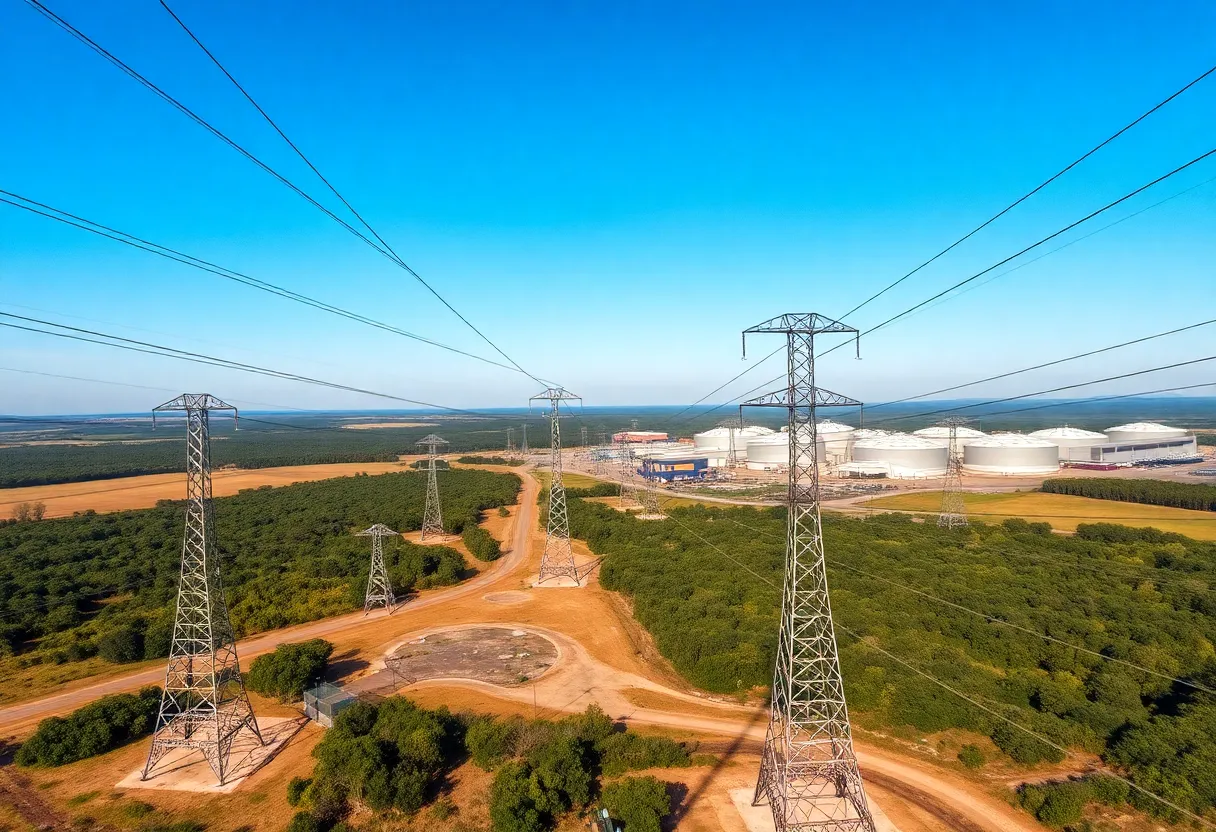News Summary
The Georgia Public Service Commission is reviewing Georgia Power’s proposal for a $15 billion investment to meet increased energy demands driven by the growth of data centers. With a projected requirement for an additional 9,900 megawatts of power, concerns arise over the environmental impact and potential costs passed to consumers. Critics highlight the proposal’s reliance on natural gas and the effects on local communities. Public hearings are underway as Georgia’s energy future hangs in the balance, especially ahead of critical elections in 2025.
Atlanta, Georgia – The Georgia Public Service Commission (PSC) is currently reviewing a significant proposal from Georgia Power, which seeks to invest $15 billion to fulfill growing energy demands, largely spurred by the expansion of data centers across the state. These data centers, many of which support artificial intelligence technologies, are projected to account for approximately 80% of the anticipated energy demand over the coming years.
In order to accommodate this surge, Georgia Power has stated that it will require an additional 9,900 megawatts of power. To put this in perspective, this amount of energy is roughly equivalent to the capacity produced by ten nuclear reactors at the existing Plant Vogtle facility.
However, the proposal has drawn criticism from various stakeholders, including local residents and environmental advocates who are expressing concerns about the potential negative impacts on the economy and the natural environment in Georgia. For instance, residents like Rachel Mask have reported personal grievances, highlighting issues such as the installation of a 500kv power line directly in residential areas that would necessitate clear-cutting forests and replacing trees with steel towers.
While Georgia Power assures the public that data center operators will bear the majority of costs associated with their energy, transmission, and substations, there is apprehension among residents that the financial implications may be transferred to ratepayers, leading to increased electricity bills. Historical data indicates that Georgia Power’s rates have risen more significantly for residential consumers compared to industrial customers.
The proposed energy plan involves a notable increase in natural gas usage, with nearly 60% of the additional energy projected to be sourced from new or existing gas plants. Georgia Power is also prepared to construct three new natural gas turbines to manage the anticipated electricity demand. Although utility representatives assert these investments will ultimately keep base rates stable for three years while ensuring the reliability of the power grid, questions remain among the public regarding the reliance on fossil fuels.
Additionally, the plan incorporates initiatives to expand solar energy and enhance battery storage capabilities in an effort to bolster grid stability and reliability. The PSC is expected to reach a decision on Georgia Power’s proposal in December 2025, following a series of public hearings that have already drawn a diverse audience of advocates, residents, and specialists.
Georgia’s growing reputation as a hub for data center construction has raised eyebrows regarding its electricity rates and the environmental ramifications associated with such substantial energy demands. With Georgia Power revising its forecasts, the utility now anticipates a need for an additional 10,400 megawatts of power—an increase from earlier estimates. The PSC’s responsibilities include overseeing electricity supply, determining rate structures, and ensuring that residential consumers are safeguarded from escalating energy costs linked to data center growth.
The upcoming elections for two PSC members on November 4, 2025, could also influence future energy policies in Georgia, potentially shifting the focus toward different energy solutions. Environmental groups are advocating for a more rapid transition to clean, renewable energy sources, opposed to an increased dependency on natural gas.
As the public hearings progress, community opinions remain polarized. Some residents emphasize the economic opportunities that data centers bring to the state, while others raise urgent concerns regarding environmental protection and the sustainability of energy practices. The outcome of the PSC’s evaluation could shape the future of energy supply and policy in Georgia for years to come.
Deeper Dive: News & Info About This Topic
- WSB-TV
- Wikipedia: Data center
- The Guardian
- Google Search: Georgia Power data centers
- Atlanta News First
- Encyclopedia Britannica: Electricity
- Fox 5 Atlanta
- Google Scholar: Georgia Power energy proposal
- Ledger-Enquirer
- Google News: Georgia Power data centers growth

Author: STAFF HERE AUGUSTA WRITER
The AUGUSTA STAFF WRITER represents the experienced team at HEREAugusta.com, your go-to source for actionable local news and information in Augusta, Richmond County, and beyond. Specializing in "news you can use," we cover essential topics like product reviews for personal and business needs, local business directories, politics, real estate trends, neighborhood insights, and state news affecting the area—with deep expertise drawn from years of dedicated reporting and strong community input, including local press releases and business updates. We deliver top reporting on high-value events such as Arts in the Heart Festival, Westobou Festival, and Masters Week. Our coverage extends to key organizations like the Augusta Metro Chamber of Commerce and Greater Augusta Arts Council, plus leading businesses in manufacturing and healthcare that power the local economy such as Textron Specialized Vehicles, Cardinal Health, and Nutrien. As part of the broader HERE network, including HEREAtlanta.com and HERESavannah.com, we provide comprehensive, credible insights into Georgia's dynamic landscape.


